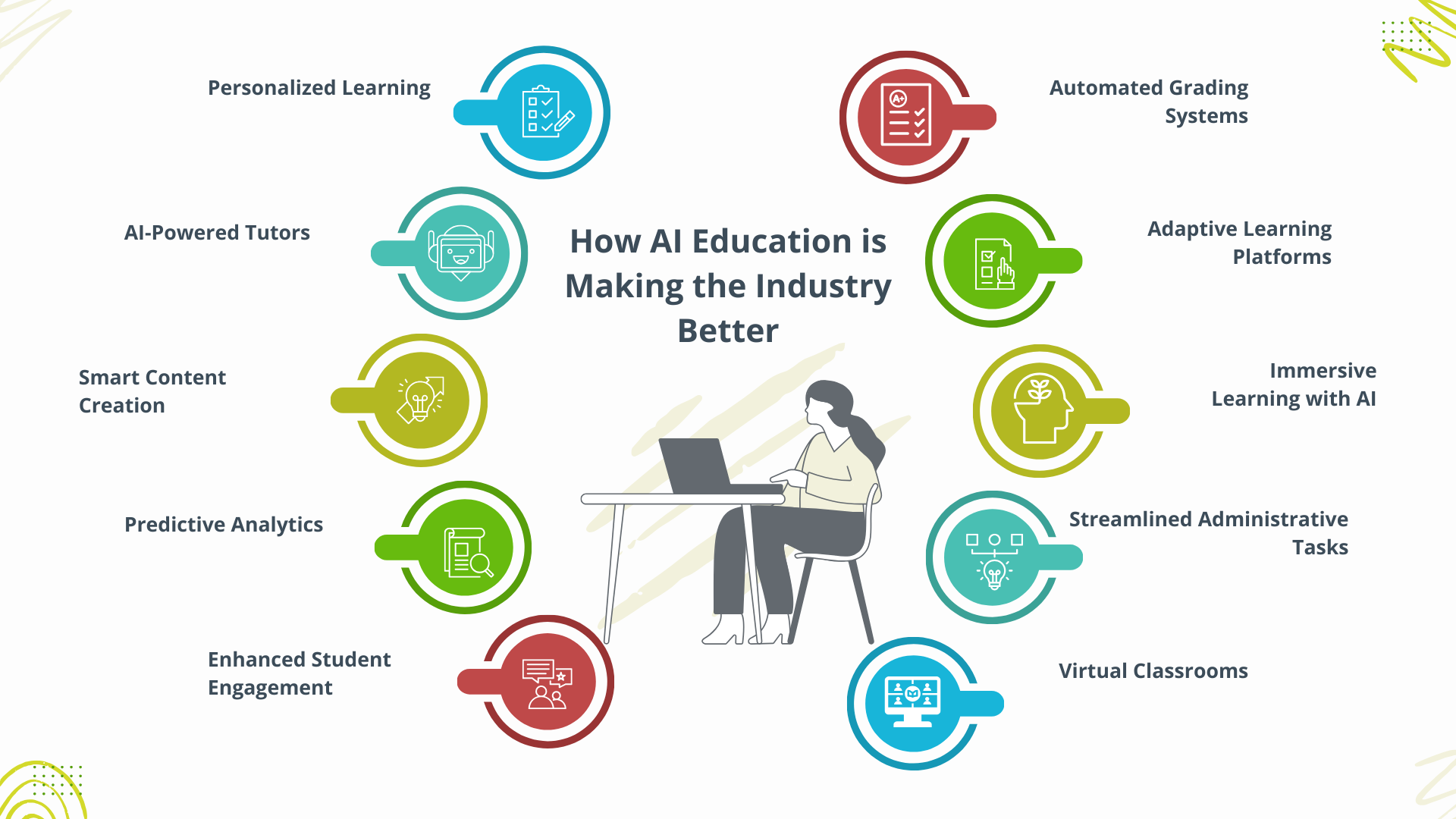Introduction to AI-Driven Personalized Learning
Personalized learning is an educational approach that aims to tailor learning experiences to meet the unique needs, preferences, and abilities of individual students. This method promotes a more engaging and effective learning experience by acknowledging that each learner has different strengths and challenges. With advancements in technology, particularly artificial intelligence (AI), personalized learning has become increasingly viable and impactful. AI-driven personalized learning leverages sophisticated algorithms and data analytics to create customized learning plans that adapt in real-time to the learner’s progress and requirements.
The integration of AI into educational frameworks allows for a more dynamic and responsive learning environment. AI can analyze a wealth of data, including students’ past performances, learning rhythms, and engagement levels, to recommend tailored content. This targeted approach not only enhances engagement but also significantly boosts retention rates, as students are more likely to absorb information presented in a manner that resonates with their individual learning styles. Furthermore, AI technologies enable educators to gain insights into their students’ learning behaviors, allowing them to address challenges and foster a more supportive educational ecosystem.
Learning plans generated through AI technology can be easily adjusted to accommodate varying paces and styles. This adaptability can prove particularly beneficial in diverse classrooms, where learners may come from different backgrounds and exhibit distinct learning preferences. For instance, some students may thrive with visual aids, while others might benefit more from auditory or kinesthetic learning methods. By facilitating these tailored experiences, AI-driven personalized learning not only enriches the educational journey but also empowers learners to take charge of their own development. This sets the stage for a more equitable and effective education system, where every student has the opportunity to unlock their full potential.
How AI Algorithms Create Customized Learning Plans
Artificial Intelligence (AI) has revolutionized education by employing algorithms that create tailored learning experiences for students. Central to this process is the analysis of diverse data types, which includes students’ performance metrics, learning preferences, and engagement levels. These data points serve as the foundation for the development of personalized learning plans, ensuring that each student’s unique needs are accommodated.
Machine learning is a key technique utilized in the creation of personalized learning plans. By examining historical data, machine learning algorithms can identify patterns in student behavior and performance. For example, if a student exhibits consistently high scores in mathematics but struggles with language arts, the algorithm can recommend specific resources and exercises designed to enhance their skills in less proficient areas. Furthermore, these algorithms can assess learning preferences by collecting data on how students interact with the content—whether they prefer videos, readings, or interactive modules. This information guides the recommendation of learning materials that align better with individual preferences, ultimately fostering engagement and knowledge retention.
Data mining techniques further enhance this personalization process by allowing educators to extract actionable insights from large datasets. For instance, platforms that leverage AI algorithms can monitor engagement levels through metrics such as time spent on tasks, participation in discussions, and quiz performance. This ongoing assessment facilitates the immediate adaptation of learning plans, enabling educators to intervene when a student is struggling or to provide advanced resources when they exhibit mastery of a subject.
As a result, personalized learning plans evolve continually based on student feedback and assessment outputs, refining the educational journey. The systems that utilize these AI algorithms create a dynamic learning environment, adapting to students’ changing needs and enabling them to unlock their full potential.
Benefits of Implementing AI-Driven Personalized Learning Plans
The integration of AI-driven personalized learning plans in educational settings offers numerous advantages that significantly enhance the learning experience for students. One notable benefit is the promotion of self-directed learning. By utilizing AI technology, educators can create customized pathways that allow students to take control of their educational journeys, encouraging autonomy and individual responsibility. This shift not only instills a sense of ownership in learners but also cultivates critical thinking skills essential for lifelong learning.
Moreover, AI-driven systems excel at identifying and addressing knowledge gaps through targeted interventions. Unlike traditional educational approaches, which may adopt a one-size-fits-all model, personalized learning plans can assess the specific areas where a student may be struggling. By harnessing data analytics, AI can pinpoint these deficiencies and suggest tailored resources that aim to fill these gaps, thereby promoting a deeper understanding of the subject matter.
Another significant advantage lies in the enhancement of student motivation through tailored content. When learners engage with materials that resonate with their interests and skill levels, their motivation increases, leading to improved academic performance. The personalization aspect ensures that students are consistently challenged without feeling overwhelmed, striking an optimal balance that fosters engagement and enthusiasm for learning.
Furthermore, teachers can leverage AI-driven personalized learning plans to refine their instructional strategies and facilitate differentiated instruction. With access to real-time analytics, educators can monitor student progress more effectively, allowing them to adjust their teaching methods based on individual performance. This data-driven approach equips teachers to better support students’ unique learning needs in diverse environments, including special education and adult learning scenarios, ensuring that every learner receives the necessary guidance and resources for success.
Challenges and Future of AI in Personalized Learning
The integration of artificial intelligence in personalized learning plans presents a myriad of challenges and ethical considerations that need careful examination. One of the primary concerns relates to data privacy. Personalized learning systems rely heavily on student data to tailor educational experiences, but this raises significant issues regarding the storage, usage, and potential misuse of sensitive information. Ensuring compliance with legal standards such as the Family Educational Rights and Privacy Act (FERPA) and the General Data Protection Regulation (GDPR) is paramount, as educational institutions must prioritize the protection of learners’ personal information.
Another critical issue is equity of access. While AI-driven personalized learning can offer customized educational paths, not all students have equal access to the necessary technology and resources. Disparities in internet connectivity and access to digital devices may exacerbate existing educational inequalities. Therefore, ensuring that these advanced systems are available to all students, irrespective of socioeconomic status, is essential for fostering an inclusive learning environment.
Additionally, the potential for algorithm biases presents a significant risk. Algorithms trained on biased data may inadvertently reinforce stereotypes or fail to represent diverse cultural backgrounds. To combat this, developers and educators must work together to create transparent and fair AI systems that promote equity and respect for all students’ unique identities.
Looking toward the future, the potential of AI in personalizing learning remains immense. As technology continues to evolve, we may witness more advanced algorithms capable of creating increasingly adaptive learning environments. The integration of AI into curricular designs can lead to more responsive educational approaches, fostering engagement and improving learning outcomes. However, alongside these advancements, it is crucial to develop ethical frameworks and standards for the deployment of AI in education, ensuring that technology serves as a tool for empowerment rather than disparity. By addressing these challenges and embracing thoughtful innovation, educators can unlock AI’s transformative potential in personalized learning.









